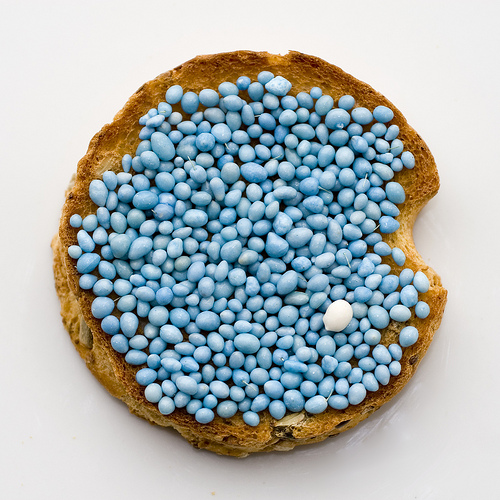Everyone wants to give their children the healthiest possible start in life. So, if you are having a baby in the Netherlands, you will no doubt be curious about how the Dutch treat this matter. We will give you a run down of how to navigate pregnancy, childbirth and postnatal care in the Netherlands. Find out about everything from prenatal check-ups, to pain medication, to maternity home care on this page.
It’s safe to give birth in NL!
Lets clear one thing up before we get started: Many expats are taken aback by the non-interventionist approach to perinatal care in the Netherlands. However, you need not fear for the safety of you or your baby if you give birth in Holland.
It is a common misconception that all Dutch mothers have home deliveries, and are assisted only by a midwife
- In fact, only about 21% of women have their babies at home in the Netherlands
- The majority of deliveries happen in a hospital, under the guidance of a midwife or a gynecologist
- A mother-to-be, and her baby, will be monitored regularly throughout pregnancy, labor, delivery and during the postpartum period
- So there is nothing to worry about
Childbirth Often Goes Well!
The Dutch often say:
 ‘Having a baby is not a disease’
‘Having a baby is not a disease’
A strange saying, but they are right! This Dutch expression alludes to the fact that having a baby in the Netherlands does not have to be dangerous for your health, if you take good care of yourself and take the correct precautions. Here is what we advise:
Medical Treatment for Pregnant Mothers
- Unlike in other parts of the world, expectant mothers in the Netherlands are only required to visit a midwife. Midwives in the Netherlands do not, generally speaking, perform ultrasounds
- Visiting a medical specialist, and having at least one ultrasound carried out during your pregnancy, would allow for the timely detection of any growth deficiencies your baby might have. (Although, of course, he or she is likely to be completely healthy!)
- Heart problems and other potential threats to your newborn’s health can be picked up through an ultrasound as well
- Dutch specialists are very well-equipped to deal with these issues
Visit a Gynaecologist
- Therefore, if you are pregnant and want to minimize the risks to your baby’s health, we recommend that you visit a gynaecologist at least once during your pregnancy
- By doing this, you can make sure that your baby is healthy and developing at a normal rate
- Discuss this with your GP and/or midwife, so that you can obtain a referral notice to send to your insurance company. Read on to find out more about gynaecologists in the Netherlands
Let’s go over what will happen when you have a baby in the Netherlands:
Being pregnant in NL
First of all: congratulations! Here is what happens next:
- Talk to your GP
- Ask him or her to recommend a reliable gynecologist or midwife to you
- The Dutch word for midwife is: :Verloskundige’, and the word for gynecologist is: ‘gynaecoloog‘
- If you would rather do your own research, look for one of these medical professionals online
- Bare in mind that if you do not get a referral from your doctor to see a gynecologist, the cost of the appointment may not be covered by your insurance
- Call the midwife or gynecologist to make an appointment. Try to do this no later than 8-10 weeks into your pregnancy, as most practices are quite busy
PRENATAL CARE IN NL
The Midwife in NL
Are midwives in the Netherlands the same as those in other countries?
- In the Netherlands, a midwife is an independent practitioner who can legally practice obstetrics without the supervision of a medical doctor
- Unless you actively seek out further medical assistance, your midwife will be your sole health care provider during your pregnancy, your delivery your initial postpartum period
- However, if complications arise, or you have a pre-existing medical condition, you will be referred to a gynecologist
- Midwives work alone or in a group practice in the Netherlands
- If you choose to receive care from a group practice, you will be seen by several different midwives during your routine check-ups
 Tip
Tip
Prepare for your Appointment
The Dutch might not anticipate or understand your need for information or reassurance when you are pregnant. Because of this, we recommend that:
- You have a list of questions at the ready when you visit your midwife, gynaecologist or doctor
- Try not to be thrown if they seem to take a very casual approach to your questions and concerns, or even if they dismiss them
- If need be, explain that there is more advice and guidance offered to women preparing to have a baby in your home country
- And stand your ground!
The Gynaecologist in NL
It is not standard Dutch practice for a woman to be cared for by a gynaecologist before or after she has a baby. However, if would feel more comfortable receiving medical care from gynaecologist whilst you are pregnant, you can make it happen and we encourage you to do so.
- The Dutch word for gynaecologist is ‘gynaecoloog’
- In order to see a gynaecologist regularly whilst you are pregnant, you will need a referral from your midwife or your GP
- This is essential, if you would like the costs to be covered by your insurance
- While it is not common practice in the Netherlands, it is highly unlikely that you will not be given a referral
A Referral to the Gynaecologist
- If your midwife feels that you or your baby could be at risk at any time during your pregnancy, she will refer you to a gynecologist herself
- If necessary, you will be put under the treatment of the gynecologist for the remainder of your pregnancy
- This would be fully covered by your insurance
 Side Note
Side Note
Doctors and Pregnancy in NL
- It is very rare for an expectant mother to be cared for by her GP in the Netherlands
- Occasionally, however, it does happen
- It is most common in small Dutch villages, where there is no midwifery practice
- In this situation the GP will, in effect, take over the responsibilities that would traditionally be held by a midwife
Routine check-ups in NL
It is so important to schedule and attend routine checkups when you are preparing to have a baby. Here are the steps you need to take, and what you can expect in the Netherlands:
Checkups in NL: Step by Step
- Your first visit to the gynecologist or midwife will take place at around the twelfth week of your pregnancy
- Your practitioner will note down yours and your partner’s medical histories, as well as that of your respective families
- They will also, of course, give you a medical check up: Your weight and blood pressure will be taken. Fetal growth, position and heart beat will be monitored. Your blood iron levels will be checked as well
- Your midwife or gynecologist will also discuss with you whether you plan to have a home birth or a hospital birth. In Dutch, a home birth is called a ‘thuisbevalling’, and a hospital birth is referred to as a ‘ziekenhuis bevalling’
- You will visit your midwife or gynecologist approximately 12 times during pregnancy
- The first visit should last about half an hour. Following this initial meeting, most visits will be no longer than a quarter of an hour
Ultrasounds in NL
- Most midwives do not have ultrasound equipment. So, you will be referred on to a hospital should you need an ultrasound
- Some parents wish to have an ultra sound performed, not for any medical reason, but to simply see their baby for the first time in utero. This is referred to as a ‘pret-echo’ in Dutch. You can have a video made of your baby at this stage of its development
- If this interests you, enquire about it during one of your routine visits
Look After Yourself
It is very important that you feel at ease, well looked after, and able to communicate your needs to your practitioner. You need to avoid stress as much as you possibly can when pregnant. So, if you are uncomfortable or dissatisfied with the service you are receiving in anyway, move on to a new practitioner. There will be other midwives, gynaecologists and doctors out there.
PRENATAL TESTING IN NL
Prenatal testing and genetic screening are not performed on a routine basis in the Netherlands. Genetic screening, for example, is generally only conducted when a pregnant woman is found to be in a high-risk category for fetal chromosomal defects. This means that medical practitioners are concerned that her baby could have: Down Syndrome, Cystic Fibrosis, Spina Bifida or Muscular Dystrophy
High Risk Pregnancy
In the Netherlands, a pregnant woman is considered at high risk if she:
- Is 36 years of age or older
- Has previously had a child with a congenital defect
- If there is a history of chromosomal problems in either her or her partner’s family
If you fit into none of the above categories, but you have personal concerns, discuss them with you midwife or gynecologist. There are many different kinds of tests available.
 Tip
Tip
Childbirth Preparation Classes
Learning to deal and cope with pain is one of the keys to having a successful labor and delivery
- The Dutch word for childbirth preparation classes is: ‘Zwangerschapscursussen’
- The Netherlands offers several types of prenatal exercise and birthing classes
- We recommend that you look into all of your options online before you begin
- Research has shown that the more you know about labor and delivery, the better you are able to deal with both pain and any complications that may occur during the birth of your baby
- We therefore recommend that you sign up for childbirth preparation classes as early on as you can, and take your partner along with you!
- Other, alternative pain relief options could be available to you as well. These may include: are hypnosis, acupuncture and TENS (Transcutaneous Electrical Nerve Stimulation). Ask your doctor or midwife about these practices
WHERE WILL YOU HAVE YOUR BABY IN NL?
In the Netherlands, you can choose to have your baby either in a hospital or in your own home, under the guidance of a midwife.
Home Birth
- Giving Birth in the comfort of your own home can be a beautiful experience
- If you decide to have your baby at home but, during your pregnancy, wish to change your mind and deliver in the hospital this can be arranged at any time
- We would, however, advise you to try and decide sooner rather than later. Matters can become complicated if you change your mind just before or even during delivery
- Should there be any complications during your delivery, you will be taken to the hospital by ambulance
Hospital Birth
- If you have been under specialist supervision throughout your entire pregnancy it is likely that you will be advised to give birth in hospital
- This is referred to as ‘bevalling op medische indicatie‘ in Dutch. It translates as: ‘childbirth on medical indication’
- If you have been under supervision from your midwife outside of the hospital, then you will not have to deliver there unless there are complications with your pregnancy, or during your delivery
Voluntary Hospital Delivery
- However, you can also opt for what the Dutch call a ‘poliklinische bevalling‘. This translates an ‘out-patient hospital delivery’, and is a voluntary hospital delivery
- When you opt to give birth in hospital, you will be attended either by a midwife or a gynecologist
- With an out-patient hospital delivery you will be in and out of the hospital within 24 hours, unless there are any complications
- If there are some complications with your birth, or if you have a planned cesarian, you will be required to remain in hospital for longer
Hospital Birth Insurance
- In order for a hospital delivery to be covered by your insurance, there must be a medical reason for you having your baby in hospital, rather than in your home
- This medical reason can arise either during pregnancy or delivery
- If you opt to have a voluntary out-patient hospital delivery, your insurance company will cover a portion of the costs. You will, however, be expected to pay a contribution
- Sometimes, your insurance will cover all costs. Be sure to ask your insurance provider about this
- Some women who choose to have an out-patient hospital delivery but end up having to stay in hospital for longer, due to medical complications or the need for a Caesarean. When this happens, the costs will always be covered by her insurance company
- Home deliveries will be fully covered by your provider
THE BIG DAY HAS COME!
It is exciting and nerve racking when the big day comes. It should go something like this:
Home Delivery: Step by Step
- Call the midwife or hospital once your waters have broken and/or your contractions are becoming frequent
- If you are delivering at home, your midwife will come to your house as soon as she can
- She will stay with you throughout your delivery
- During delivery, the midwife will be assisted by a ‘kraamverzorgster’. This is a ‘maternity nurse’. We will describe their role in more detail just below
After Birth
- Once your baby has been born, your midwife will examine him or her. She will also perform the APGAR-test. This test is used to determine how the baby is doing after the birthing process and how he or she is faring outside of the womb. It is usually performed by the midwife, just minutes after the baby’s birth
- Generally speaking, your midwife will leave your house within an hour of your delivery
- The maternity nurse will stay on, to give you some extra help. Her job is to: dress and care for the baby, prepare the crib, help the mother to take a shower, and clean up the house a bit
- If the baby was born during the night, she will take care of mother and baby, and leave a list of instructions for them. She will also leave her phone number, and urge you to call if you have any questions
Hospital Delivery: Step by Step
- If you have been advised to give birth in the hospital, or if you have opted to have your baby in the outpatient clinic, you will have to phone either your midwife or the hospital directly when your water breaks
- The hospital will discuss with you whether or not you should come in straight away
- Once you have arrived at the hospital, you will be allocated a ‘birthing room’
- Your medical practitioners will palpate and examine you to determine how much you are dilated
- The heartbeat of your baby will also be monitored
- Depending on how busy the hospital is, and how your delivery is going, be prepared to spend quite a bit of the time alone, or alone with your partner
- You will, of course, be checked on regularly. Still, it is usually not until your actual delivery commences that you will have full-time supervision from an in-house midwife, your own midwife or a gynaecologist
- Remember that, depending on who is available when you go into labor, you may be assisted by the midwife or gynaecologist on duty, and not the practitioner who accompanied you throughout your pregnancy
PAIN MEDICATION DURING BIRTH
As we mentioned earlier, the Dutch have a‘level-headed’ attitude towards pregnancy and delivery. They believe that it is a natural process, which should not be interfered with too much. So, you might be able to guess what they think of pain medication:
- Pain medication is not offered during a home birth and only rarely during a hospital delivery
- Midwives are not, on the whole, allowed to administer pain medication themselves
- If this concept worries you, be sure to discuss which types of medication or pain relief are available, with your doctor or midwife. Please do not leave it until your delivery, because it could be too late!
- Be tactful, but persistent. If necessary, explain your concerns. Let the medical staff assisting you know that labor and delivery are handled differently in your home country
Maternity Home Care in NL
There are wonderful maternity home care services on offer in the Netherlands:
- In Dutch maternity home care is called ‘kraamzorg‘
- It is the type of care a mother receives after having a baby, either at home or in hospital
- A ‘maternity nurse‘ will provide this care. In Dutch, he or she is described as a ‘kraamverzorgster’
- It is actually obligatory to receive this form of care in the Netherlands
- This can come as quite a shock to mothers who are from a culture in which strangers are not expected to enter someone’s home, immediately after they have given birth
Insurance for Home Care in NL
How much does maternity home care cost in NL?
- How much home care you are entitled to depends on your insurance company
- You may have to contribute towards the cost of your maternity home care yourself
- You do, however, have a legal right to a minimum of 24 hours of Dutch maternity home care, if you live in the Netherlands. These 24 hours can be spread out over eight days
- Make sure you discuss how much coverage you are permitted with your own insurance company, because their rates and rules vary. Your insurance policy might, for example, cover you for 80 hours of home care over a maximum of ten days
- If there happens to be a shortage of maternity nurses available when you need to receive your home care your insurance company may, under certain circumstances, cover the costs of a private maternity nurse coming to your home
The Maternity Nurse
What kind of home care will you receive from the maternity nurse?
- The maternity nurse will visit you daily. She will assess both your health and that of your child
- She will teach you, your partner and any one else helping you with your baby, how to bathe, change and care for him or her
- Your nurse will also assist you with breastfeeding and will, depending on how many hours per day she works, tend to some housekeeping, cooking, shopping and caring for other members of your family
Care Hours
- You can opt for part or full-time care. This means that you can choose to receive all your home care in one block. If you opt for this, your maternity nurse will come to your house every day and stay for 8 hours a day, until your home care quota has been used up. Alternatively, you can ask your maternity nurse to come for just 2 hours a day, for more days
- Full-time care is becoming more and more difficult to arrange in the Netherlands. This is due to there being a shortage of maternity nurses
- To give yourself the best possible chance of receiving the kind of care that best suits you, we advise you to explore as many maternity home care resources as you can. Research online (kraamzorg) and ask your friends, your family and your midwife or your gynecologist for recommendations of organizations in your area
- If possible, apply during your first trimester. The sooner the better
 Tip
Tip
In-Hospital Postnatal Care
- Before giving birth, ask your hospital what kind options they have for you to stay there after you have had your baby
- It is important to do this, just incase your baby needs to remain in the hospital for a period after he or she has been born
- Check in with your insurance provider as well, to ask whether you will be covered for this
- Many hospitals have some type of maternity lodging option. This usually means that you do not officially take up a hospital bed but can still spend the night with your baby
THE FIRST WEEK AFTER BIRTH
During your first week at home, after you have had your baby, you will be visited 2-3 times by your midwife and/or your GP. You must arrange these visits before your delivery. It is especially important that you do this if you are planning to give birth in hospital, because you will be discharged quite promptly if all goes to plan. Here’s what will happen:
Visits from your Midwife
- They will check up on yours and your baby’s health status
- They will also confer with your maternity nurse about your progress
- Between day 4 and day 10, your midwife and/or your GP will administer a test called the ‘hielprik‘. This translates as ‘heel prick’ and is sometimes referred to as the ‘Guthrie test’. Its purpose is to check for several metabolic and thyroid diseases
- In order to perform the heel prick test, a small amount of blood is drawn from a baby’s heel and sent to a laboratory for testing
- Within the first 3-14 days of your delivery, the ‘Well Baby Clinic‘ will send a ‘neighborhood nurse’ to your home too, to check on your baby. You can read more about both the Well Baby Clinic and the role of a neighborhood nurse in our side note box below
- Depending on where you live, the hielprik may be performed by this nurse, rather than by your midwife or GP
Receiving Visitors
- As you can see, you will have quite a full house during the first week after you have had your baby!
- The maternity nurse, the midwife, the GP, the district nurse and, last but not least, the ‘kraamvisite’: the visitors…
- In the Netherlands, once a baby is born, everyone wants to come and admire your new family member: neighbors, colleagues, friends, relatives etc
- You can read more about the customs and etiquette of having a baby in the Netherlands in our article on party time in NL. We recommend you have a look at this page if you would like some advise on how to politely request more privacy after your delivery
 Side Note
Side Note
The Well Baby Clinic
In most countries, routine check-ups for new mothers and babies are carried out by a GP or a pediatrician. In the Netherlands this service is provided by the local ‘Consultatiebureau‘. This is referred to as the ‘well baby clinic’ in English.
Screening Tests
- The Consultatiebureau is a community-based, country-wide network of clinics providing preventative health care to infants and toddlers
- The well baby clinic is responsible for performing all kinds of screening tests. They check, for example, your baby’s motor and cognitive development, speech, hearing and sight
- ‘The Ministry of Health, Welfare and Sports‘ vaccination program will also be administered by the well baby clinic
- You will first be contacted by the Consultatiebureau after you register your infant. This should be done soon after delivery, and you can read about it on our page that covers legal matters for parents in the Netherlands
- Your local office will follow up this call by sending a neighborhood/district nurse to your home within 3-14 days after delivery
 Useful links
Useful links
- Maternity home care in the Netherlands: ‘Kraamzorg‘
- Other forms of home care in NL: ‘Thuiszorg Bureau Netherlands‘
- Midwifery in the Netherlands: ‘KNOV‘
 Recommended reading
Recommended reading
The Access guide to having a baby in the Netherlands:
Information for expectant parents and parents of babies and toddlers. The guide covers topics such as: pregnancy, child health and safety, insurances, support groups and childcare services

Everything you need to know about c ...
As an expat in the Netherlands, there might be a couple of traditions that will ...

The UnDutchables 9.0
Following the legendary previous eight editions of The UnDutchables, the 9th edition of this all ...

Gift giving in the Netherlands-all ...
If you feel like skipping your birthday, you may be in for a challenge when ...

The American Netherlander - 25 Year ...
In 1994, author Greg Shapiro came to the Netherlands. The idea was to spend a ...

How to Meet Locals in Amsterdam
Being far from home in a foreign city or country can be one of the ...

Typical Dutch Festivities
In the Netherlands, the Christmas season is marked by a sequence of typical Dutch festivities ...

Special Occasions the Dutch way
The Dutch love to mark a special occasion. What's more, for each one, they ...

Dutch Customs and Etiquette
The Netherlands has its own unique set of customs. There is an etiquette for how ...